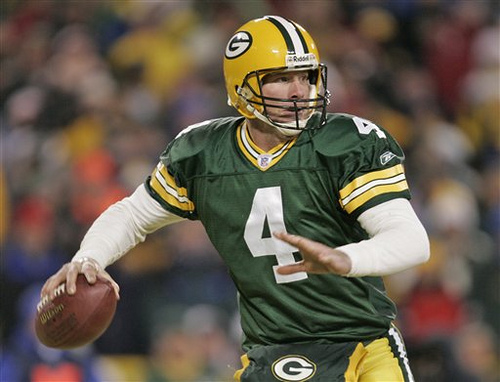Sports media exploded this Tuesday after this week’s rendition of Monday Night Football sported a combined five interceptions between quarterbacks Eli Manning and Sam Bradford.
What fans believed would be a good matchup, what with the struggling yet talented Eagles and the recently successful, momentum-ridden Giants taking the field quickly turned into a spectacle of turnovers. While neither team exemplified particular prowess, the Eagles came away with a win solely because of their ability to capitalize on turnovers with scores, while the Giants frequently allowed their strokes of luck to go unrewarded. Watching quarterbacks throw to men in different colored jerseys this Monday night got me thinking – what is it, exactly, that causes interceptions? After all, neither Eli Manning nor Sam Bradford are “bad” quarterbacks…each has a respectable reputation (Manning even has been in the discussion of potential future elites after winning two Super Bowl rings), and yet both had an atrocious game this Monday.
I thought back to the past few seasons as a Saints fan, watching the phenomenal quarterback Drew Brees throw a pick almost every game. Brees’ prowess is undisputed – his numbers are unreal, he possesses numerous titles and has a Super Bowl ring to back it all up. And yet, he is number 28 all time of quarterbacks with the most career interceptions.
In fact, the list of quarterbacks with the most interceptions is an intriguing one – the revered Peyton Manning comes in at number 11, and notable names such as Dan Marino and John Elway both reign in the top 15. And the most shocking statistic of all?
The King of Interceptions, coming in at number one with 336 career interceptions is esteemed quarterback Brett Favre.
If so many franchise quarterbacks also make the list of most career interceptions out of every NFL quarterback ever, there must be some sort of logical explanation. To crack the mystery of the interception, I turned to the data analysis that I vaguely payed attention to during my high school AP Statistics class, and found that the first plausible explanation for this turnover phenomenon could be that these franchise quarterbacks simply threw more passes than the average NFL quarterback.
As stars, these quarterbacks generally had longer careers than the Tim Couch’s or Jamarcus Russells of the NFL. Look at Brett Favre – it makes sense that he would have the most interceptions because he played in the NFL for a whooping twenty years. The number of Favre retirement announcements tops the number of games that many shorter-term quarterbacks threw in over their entire careers. Statistically, the elite quarterbacks could have significantly lower percentages of career interceptions even if their gross number is higher, because they have thrown so many more passes than most other quarterbacks.
Each specific interception includes many factors; sometimes, the fault lies with an incompetent receiver; sometimes the O-line’s failure to relieve pressure forces the quarterback to throw an inaccurate pass; sometimes, the interception is just a fantastic defensive play. But when a quarterback’s career interception numbers are this high, it is safe to say that a probable leading factor falls on the quarterback himself.
Let’s say an elite quarterback throws a significant number of interceptions in a season, rather than in their entire career—a phenomenon that cannot necessarily be explained by sheer number of passes. Many interceptions take place when a quarterback throws into traffic – either slightly under or overthrowing the ball to a receiver who may or may not have a higher vertical than their defender. Many quarterbacks of this age are risk takers – like Drew Brees, they throw seemingly unplanned, hail-mary like passes that often seem to magically find their way into outstretched hands of sprinting receivers. These catches are what we see on highlight reels, on game tapes, what we read about in the news and are idolized through overenthusiastic radio broadcasts.
Now, with great risk comes great reward – after all, wasn’t it the great Wayne Gretzky who said that you miss 100% of the shots you never take? These elite quarterbacks took shots – they threw passes into traffic, to receivers who didn’t quite get their routes correct, to double-covered, shorter targets in times of desperation and potential greatness. And yes, it is clear that oftentimes, these quarterbacks missed by a wide margin.
But isn’t it interesting that we don’t think of Brett Favre as the quarterback that threw the most interceptions in his career? Rather, we think of him as a pillar of the National Football League; an elite, durable quarterback who gave every single defense a run for their money.
In the long run, interception ratings don’t seem to ruin the reputations of these quarterbacks – on the contrary, they almost illustrate an overall tendency for these successful quarterbacks to take risks on the field and to not fear those elite defensive players they line up against.






